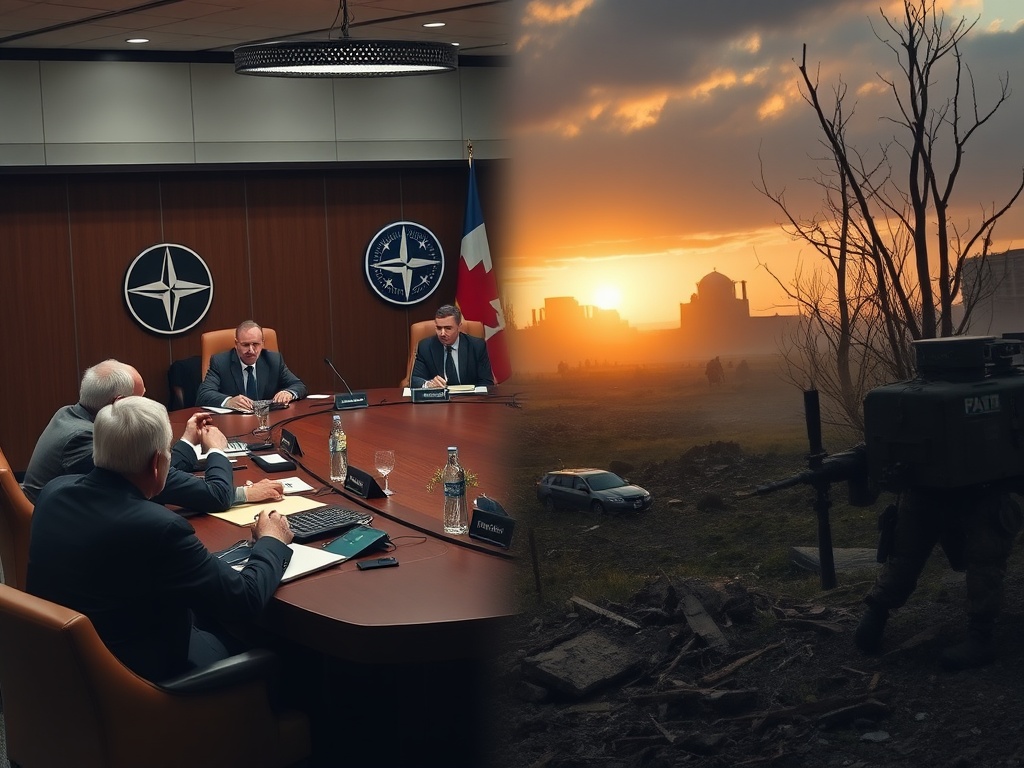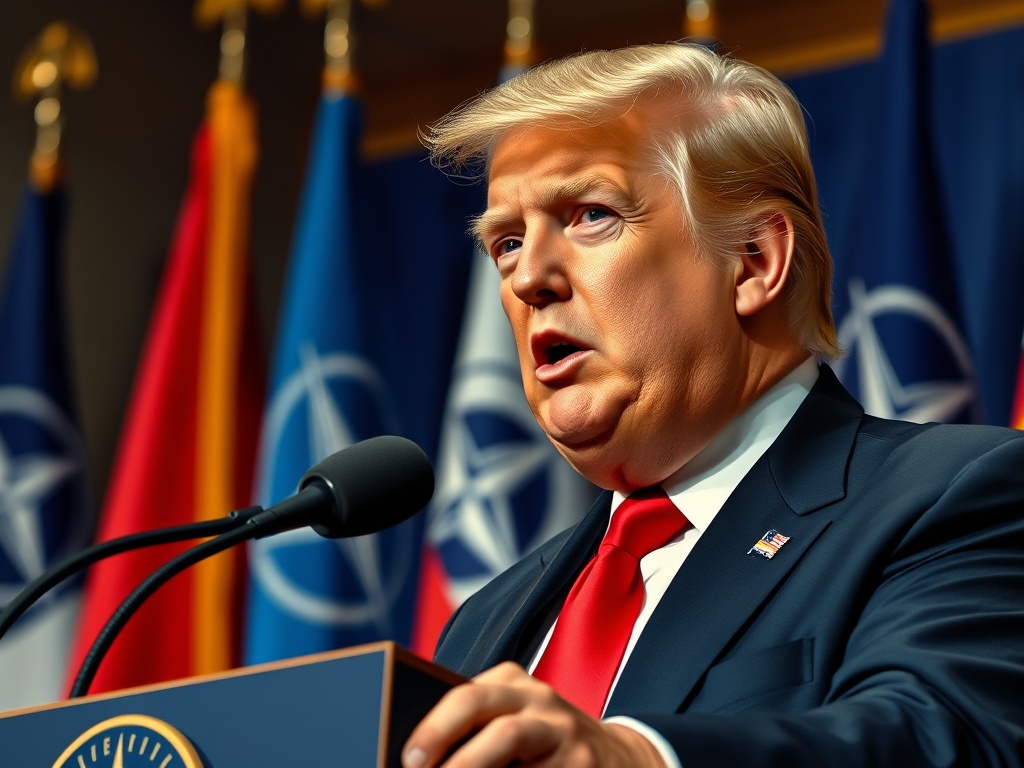Trump’s Controversial Remarks on the Ukraine War
Donald Trump’s recent statements regarding the war in Ukraine have sparked a significant shift that could jeopardize the very foundations of NATO, experts warn. By incorrectly attributing blame to Ukraine for its ongoing conflict with Russia, Trump has exacerbated divisions among U.S. allies within the world’s most formidable military alliance. In a troubling exchange, he advised Ukrainian President Volodymyr Zelensky, “you should have never started it.” This rhetoric, coupled with Trump’s earlier proposals to assert U.S. control over Greenland and the Panama Canal—potentially through military means—has raised alarms about his increasingly aggressive foreign policy stance.
By excluding Ukraine, Europe, and NATO from U.S. discussions aimed at resolving the deadliest conflict in Europe since World War II, and by echoing a misleading Russian narrative, Trump has entered “uncharted territory,” according to analysts. The fallout could be severe for both Europe and NATO.
Opening the Door to Putin

One of the most striking departures from previous U.S. administrations was articulated by Vice President JD Vance during a speech at the Munich Security Conference. He suggested that the rift between the U.S. and Europe has evolved beyond mere discussions about military spending and burden-sharing, delving into profound societal issues and questioning the very values that underpin the alliance. Vance posed a challenging question to the audience: “How will you even begin to think through budgeting questions [to increase defense spending] if we don’t know what it is that we are defending in the first place?” This statement left many attendees in disbelief.
As concerns mount over NATO’s stability and effectiveness, questions linger about the alliance’s future.
Deepening Fissures
Trump has long criticized NATO allies for their insufficient defense spending and even suggested the possibility of withdrawing from the alliance during his initial term. However, his latest comments and actions have intensified worries among allies. Rachel Rizzo, a senior fellow at the Atlantic Council’s Europe Center, described the situation as “dangerous,” warning that it creates vulnerabilities within the NATO alliance that adversaries like Russia may seek to exploit. “Putin thrives on weakness. Rhetoric like this fosters that weakness within the alliance,” she stated.
Trump’s overtly friendly demeanor towards Russian President Vladimir Putin has fueled fears in Europe of a potential “dirty deal” that would resolve the war in Ukraine on Moscow’s terms, sidelining Kyiv from any negotiations. Despite Kyiv’s strong stance that it will not accept any agreements imposed without its consent, the dynamics are shifting.
As reports emerged of a Russian drone strike near the former nuclear power plant at Chernobyl, coinciding with the Munich Security Conference, Ed Arnold, a Senior European Security Research Fellow at the Royal United Services Institute (RUSI), remarked, “Putin will feel emboldened.” He further emphasized that Trump’s agenda appears to be moving swiftly, showing a concerning lack of understanding of the delicate and complex geopolitical situation.
NATO Under Pressure?
While Trump continues to challenge NATO as he did during his first presidency, analysts argue that the current context is far more intricate due to the ongoing war in Ukraine. “NATO has awakened and transformed itself… but there is still a long way to go,” Arnold noted. The U.S. has been the primary contributor in terms of military and financial support as well as leadership within NATO. “If you begin to withdraw that support, NATO struggles to function as a cohesive organization,” he cautioned, highlighting the fragmented nature of European responses to the Russian threat.
Taking the U.S. out of NATO would venture into “uncharted territory,” given America’s central role since the alliance’s inception. Even if Trump’s threats are intended as bargaining chips, they are “certainly not helpful,” Rizzo commented.
Exploitation by Russia, China, and Iran
NATO operating without its key ally is a “silly thought,” according to NATO Secretary General Mark Rutte, who stressed the interconnectedness of global threats, including the potential emergence of long-range nuclear missiles from North Korea aided by Russian technology. “We have to stay connected for many reasons, and I believe this sentiment persists in the U.S., including within the White House,” he affirmed.
Fueling Moscow’s Military Machine
As uncertainty looms over the U.S. role in NATO, Trump has proposed reinstating Russia into the G7, stating, “I’d love to have them back.” He criticized the expulsion of Russia from the G8 following its initial invasion of Ukraine in 2014, suggesting that it was a mistake. “You guys talk about Russia constantly, and they should be at the table,” he added.
However, as sanctions from the EU and U.S. continue to strain Russia’s economy, there are concerns about the implications of normalizing relations. Arnold pointed out that allowing Russia back into the financial fold without any meaningful concessions would be “very worrying.” This could provide Russia with the resources to bolster its military capabilities, consequently increasing the threat level to Europe.




